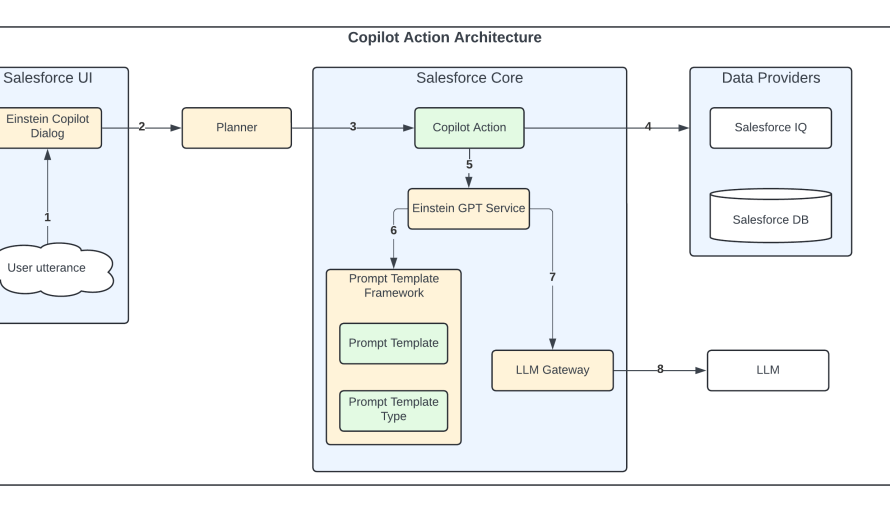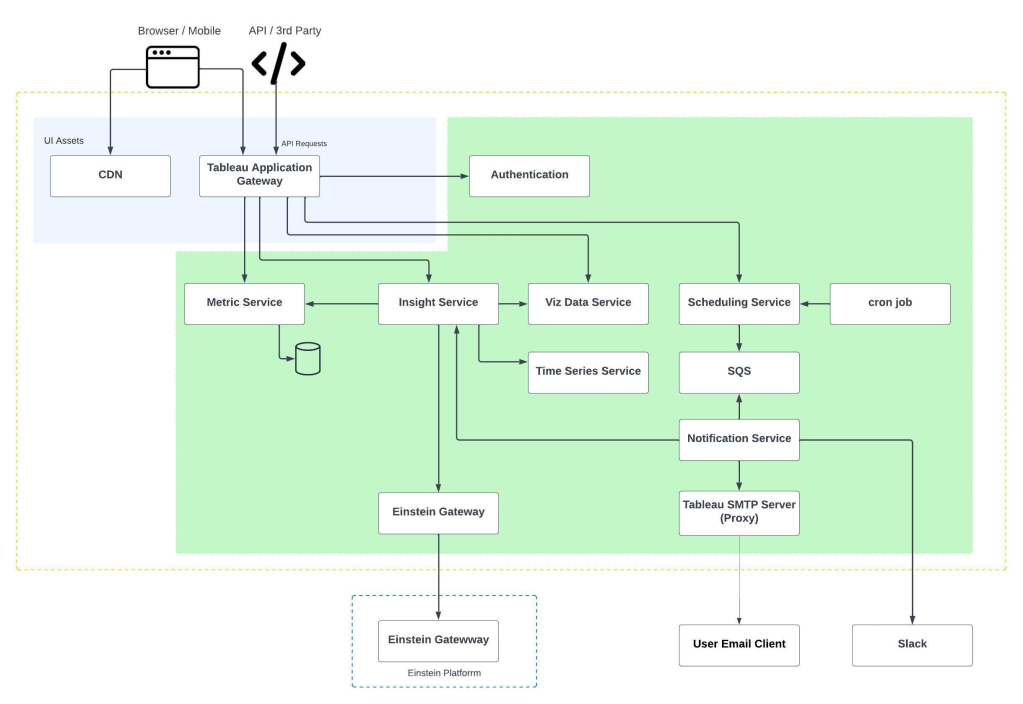
In our enlightening “Engineering Energizers” Q&A series, we explore the transformative experiences of engineers who have pioneered advancements in their fields. Today, we meet Parul Jain, Vice President of Software Engineering at Salesforce, who steers AI innovations within Sales Cloud. Her team is dedicated to developing a fully autonomous selling experience by seamlessly integrating AI technologies, transforming the way sales reps interact with and serve their customers.
Explore how Parul’s team tackled complex AI integrations, resolved critical overlapping functionality issues, and maintained rigorous standards of security and trust to significantly enhance Salesforce’s Sales Cloud.
What is your team’s mission?
As part of the Sales Cloud team, we aim to create a fully autonomous selling experience supported by proactive assistance, where our system anticipates the needs of sales reps and integrates seamlessly into their workflow.
We focus on enhancing sales efficiency by automating routine tasks such as drafting emails and strategizing next steps. This allows sales reps to focus more on engaging with customers and understanding their needs, thereby improving sales outcomes and reducing the time spent on administrative tasks.
Parul dives deeper into her team’s mission.
How do you effectively integrate predictive and generative AI technologies within Sales Cloud?
Initially, we use predictive AI to score prospects, identifying which ones are most likely to convert. Following this, generative AI comes into play to facilitate outreach, such as drafting emails or text messages.
As the sales process progresses, interactions with prospects — like emails or meeting transcripts — are analyzed using generative AI to extract sentiments and determine action items. For example, if a security concern is raised during a meeting, generative AI can summarize the discussion points and suggest follow-up actions, like preparing a security-focused presentation.
This integration ensures every step — from scoring prospects to finalizing deals — is informed by AI, enabling sales teams to operate more efficiently and effectively. By automating these processes, we aim to move towards fully autonomous selling, where AI supports the entire sales journey, tailoring actions based on accumulated data and interactions.
Can you describe an instance where you had to modify your strategy during a project due to unexpected challenges?
During the development of an AI feature for meeting follow-ups, we encountered challenges. Our initial design was to create an AI that would help sellers draft follow-up emails after meetings. However, we discovered that our AI’s commands were conflicting with another pre-existing feature that was designed to draft and revise emails. This overlap caused significant confusion because the system couldn’t differentiate between drafting routine emails and creating specific follow-up emails that included meeting details and action items.
To resolve this, we had to overhaul our design significantly. We collaborated closely with the platform team, who managed the email drafting feature, to integrate our needs into the existing system. This collaboration involved redefining the email feature to discern between drafting new emails, revising existing ones, and incorporating detailed context from meetings into new emails. Through this adaptive approach, we managed to align our project with the existing framework, ensuring that both functionalities could operate without interference. This pivot was challenging, required swift action, and was successfully completed within our tight schedule.
Parul explores Salesforce Engineering’s culture.
How do you ensure the rapid deployment of new technologies while maintaining high standards of trust and security?
Our priority is to quickly address customer needs by enhancing our products with automation and intelligence. However, we recognize that speed cannot come at the expense of security. If security lapses, it undermines customer trust and usability, as seen in scenarios like data leaks.
To prevent such issues, we conduct comprehensive upfront threat analyses during the initial stages of development. This involves securing data, APIs, and interactions with third-party systems, such as using secure gateways for accessing large language models (LLMs). By identifying and mitigating primary risks early, we ensure that all security standards are met. This rigorous approach not only prevents security breaches but also builds customer trust.
Can you explain the significance of the Einstein Platform in the context of Sales Cloud’s AI functionalities?
The Einstein Platform comprises the Einstein Trust Layer and Einstein Copilot and is essential for the seamless integration and operation of AI within Sales Cloud. Einstein Trust Layer acts as a gateway for LLMs, managing the trust and security aspects which are crucial for ensuring customer data privacy. This is key for maintaining trust with users, especially when handling sensitive customer data. By providing a secure and robust platform, Einstein Trust Layer allows Sales Cloud to leverage predictive and generative AI technologies effectively.
Einstein Copilot supports the development of new AI features by providing Sales Cloud developers with the necessary tools and frameworks to create and test AI functionalities before they are deployed. This includes handling the complexities of integrating these features into the existing Sales Cloud environment without disrupting the user experience.

Sales Cloud Copilot action architecture on Einstein Platform.
What feedback have customers provided about the AI and automation features in Sales Cloud, and how has this influenced further development?
Customers have expressed that while they appreciate the AI and automation features in Sales Cloud, they need these tools to be more context-aware and intelligent to meet their real-world use cases effectively. The feedback indicates that simpler AI actions, such as email summarization, are adopted more widely. Conversely, more complex tasks, like creating a detailed plan to close sales opportunities within a quarter, need a higher level of precision, maturity and of course, time, before these can become second nature to a seller.
In response to this feedback, our development team is prioritizing enhancements to make the AI actions more intelligent and performant. The goal is to refine these tools to better understand and handle complex scenarios, much like human cognition. This will increase their adoption and effectiveness.
Parul shares why engineers should join Salesforce
What advancements can we expect in AI and automation within Sales Cloud to enhance the sales process?
In the near future, Sales Cloud will evolve towards more autonomous selling. By handling all the mundane tasks intelligently, analyzing customer interactions and providing actionable feedback, we will free up sales representatives to focus more on personal interactions with customers. This is vital as customers prefer human engagement over automated contacts. This development represents a significant move towards enhancing efficiency and productivity in sales through AI and automation.
Learn More
- Stay connected — join our Talent Community!
- Check out our Technology and Product teams to learn how you can get involved.






